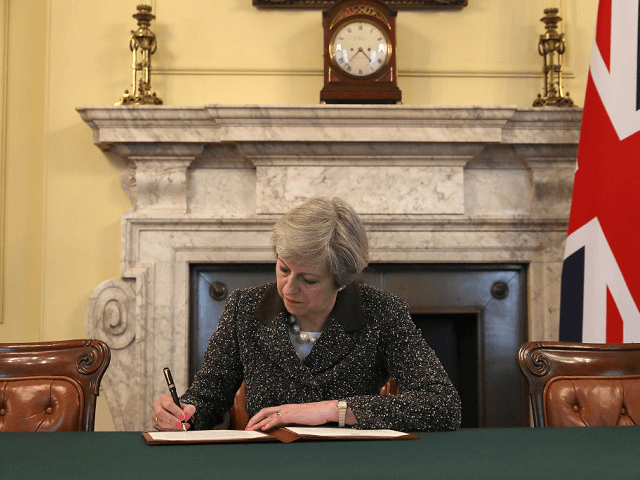An extensive new report has found the BBC’s flagship morning news show was “strongly biased against Brexit” in the critical week when Britain triggered Article 50 and began its divorce from the European Union (EU).
The analysis of the Today programme by the independent news monitoring group News-Watch – between Monday 29 March and 4 April 2017 – covered more than 73,000 words of programme transcripts.
The authors wrote that “the programme coverage was strongly biased against Brexit and made special efforts to illustrate the extent to which leaving the EU could have catastrophic consequences for the UK. There was, by contrast, only minimal effort to examine the potential benefits.”
During the six three-hour editions of Today, the BBC hosted 124 guests on the topic of Article 50, with only eight (6.5 per cent) being “given the space to make substantive arguments that the future for the UK outside the EU would yield significant benefits”.
Furthermore, in the survey period BBC correspondents “displayed what can only be described as a strong common editorial bias against Brexit”, the report claimed.
News-Watch has also found a long-term pro-EU bias on the BBC. The group has spent 13 years monitoring the Today programme before the referendum campaign, encompassing some 309 full weeks of programming.
Over that extended period, they identified “systematic, long-term inequalities in the numbers of pro-EU and ‘Eurosceptic’ guest voices at a ratio of 4:3”. They also found “clear differences in tone and treatment of those speaking unfavourably about the EU compared to their pro-EU counterparts, including a higher rate of interruptions and the recurrent use of negative language and stereotypes”.
In March of this year, 72 MPs from across the political spectrum slammed the BBC for harming the UK’s reputation by portraying the nation as “xenophobic” and regretting its vote to leave the EU in an open letter.
In October 2016, MPs also intervened after research by News-Watch revealed listeners to a selection of BBC Radio 4 programmes on iPlayer were two and a half times more likely to hear the opinions of a pro-EU speaker than anti-EU guests.
Responding to the most recent research, a BBC spokesman told the Daily Express: “The BBC has and will continue to cover Brexit in a responsible and impartial way independent of political pressure.
“The job of impartial journalism is to scrutinise the issues and interrogate the relevant voices, not advocate for a position. It’s precisely for this reason that the public trusts the BBC.
“During that week the Government was given full opportunity to set out the thinking behind Article 50, and large segments of the Prime Minister’s statement were played out on Radio 4’s PM and the World at One.”

COMMENTS
Please let us know if you're having issues with commenting.